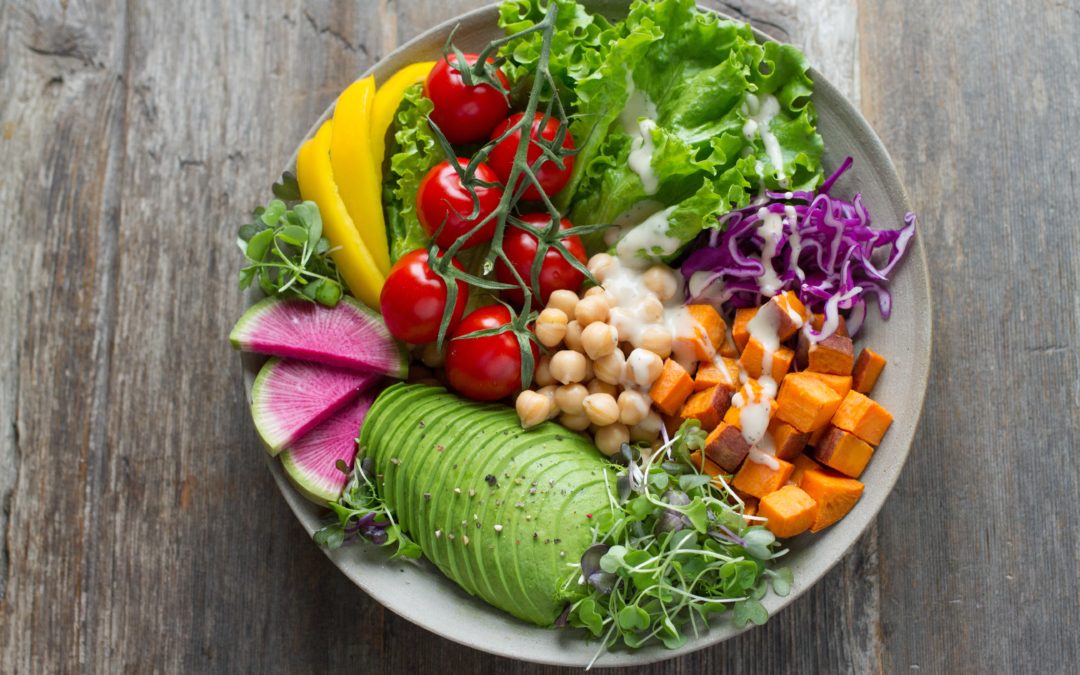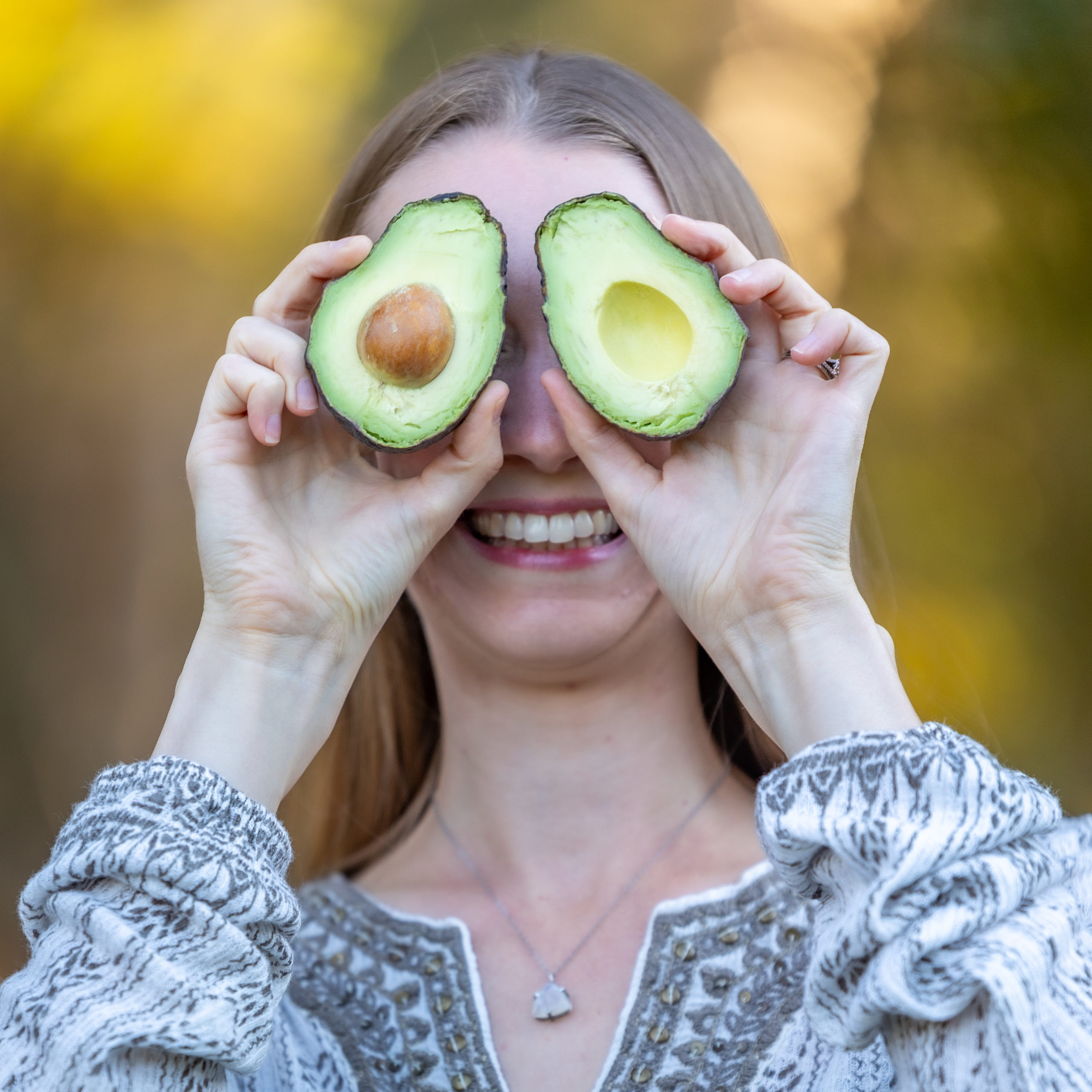As a Nutritional Therapy Practitioner, I get this question a lot. What are the best foods for endometriosis? At the end of the day the answer of exactly which foods are best for YOU can be more complex. Different people have different food sensitivities. People also have different tastes, access to food, budget for food, and so much more.
That being said, I encourage you to use the information you find in this article as a guideline. It doesn’t mean you have to eat every single thing listed here. Listen to your body above all else to find what works for you.
#1: High quality protein
Protein is such a vital nutrient for endo warriors and yet it is something that so many of us just don’t get enough of. It is needed for so many functions in the body. Some of those include building hormones as well as tissue repair, which are both so vital! It is absolutely one of the best foods for endometriosis.
When we are talking about protein (as well as any of the best foods for endometriosis), quality counts! My best recommendations for protein are grass-fed meat (and dairy if tolerated), pasture-raised poultry and eggs, and wild caught seafood. These sources of protein will be the most nutrient dense and sustainably sourced.
Yes, there are plant sources of protein too like nuts and seeds, but they are not as bioavailable. This means that even if you eat high-protein plant foods your body will not be able to absorb as much. There is a wonderful book by Diana Rodgers and Robb Wolf which explains this all super clearly if you would like to know more. I’ll link to it at the end of this article.
You want to aim for a serving size about the size of your palm with each meal of animal protein.
#2: Omega-3 Fats
Fat gets a bad rap. But the truth is that we need healthy fats in our diet. For endo warriors struggling with inflammation, Omega-3s top the list. This type of fat helps our bodies to reduce inflammation.
Most Americans have a very imbalanced ratio of Omega-3s to Omega-6s in their diet, largely due to the prevalence of vegetable oils (more on that next week!). That is why intentionally putting Omega-3s on your plate each day is really one of the best foods for endometriosis.
Great sources include oily fish like salmon, mackerel, herring, and sardines as well as plant sources like walnuts, chia seeds, flaxseeds, and hemp hearts. Aim for getting a serving or two of these on your plate each day!
#3: Antioxidant-rich foods
Have you ever heard the terms “free radicals” or “oxidative stress?” These are often referred to when talking about aging, but it is very important for endometriosis also. Endo warriors have been shown to have more tissue damage from oxidative stress and high levels of free radicals. Consuming more antioxidant rich foods can help to counterbalance this and reduce overall inflammation.
Great sources here include blueberries, cranberries, blackberries, artichokes, prunes, raspberries, strawberries, apples, cherries, plums, beans, dark leafy greens, chocolate, green tea, and so many more. Focus on getting a wide variety of fruits and veggies with lots of different colors and you should be good to go!
#4: Magnesium-rich foods
Okay now I may be a big nutrition nerd over here, but I really can’t say enough great things about magnesium! It is such an important mineral which is used for literally hundreds of functions in our bodies. It helps muscles to relax (hello, cramping uterus!), but also helps with our stress response, nervous system, regulating blood sugar, and more.
Unfortunately so many of us are deficient in magnesium these days. Magnesium plays such an important role in inflammation and antioxidant activity that low magnesium is actually a risk factor for endo developing in the first place. Crazy!
Period pain and PMS are common symptoms of magnesium deficiency, which of course if you have endo you can likely relate to.
Magnesium-rich foods include dark leafy greens, hemp and pumpkin seeds, tuna, brown rice, almonds, dark chocolate, avocados, and bananas. Although it is important to mention here that soil these days is heavily depleted from magnesium so supplementing is often warranted. I recommend magnesium glycinate for supplementing since it won’t affect your bowel movements.
#5: Cruciferous veggies
This one links back to the hormonal component of endo. Hormone levels will be unique to each individual and should be checked with functional tests such as the DUTCH test that I use in my practice before making any changes.
That being said, the common hormone imbalances I see in endo warriors tend to lean towards higher estrogen levels in relation to progesterone. We need both estrogen and progesterone, but we need them to be in balance. Out of balance hormones can certainly cause some uncomfortable symptoms as we have all experienced.
This is where cruciferous veggies come in. These include cabbage, broccoli, cauliflower, brussel sprouts, kale, bok choy, collard greens, and more. These foods can help us to metabolize estrogen properly so it can be packaged up and excreted.
I recommend lightly cooking these veggies to minimize any impacts on the thyroid and maximize the nutrient content. Aim for getting at least a few servings in each week!
Putting the best foods for endometriosis together
This is by no means an exhaustive list of foods that are a friend to your endo, but it is a great place to start. Work on getting some of these foods on your plate in each meal and see how far you go.
Always remember that at the end of the day, your own nutrient needs are quite unique, so it is important to find what works best for you. Working with a skilled practitioner can be a huge help if you are feeling lost!
Ready to dive in and get some deep-level support on your own endo journey? Great! Click here to learn more about my 1:1 coaching program and fill out the application today.
Much love!
Other Articles You Might Like:
3 Simple Ways to Reduce Endo Pain Naturally
3 Ways Gut Testing Helps Endometriosis
References/Resources:
Sacred Cow: https://www.sacredcow.info
Guadagni, Martina; Biolo, Gianni. (2009). Effects of inflammation and/or inactivity on the need for dietary protein. Retrieved from: https://pubmed.ncbi.nlm.nih.gov/19741515/
Savaris, Ana Luiza; Amaral, Vivian F do. (2011). Nutrient intake, anthropometric data and correlations with the systemic antioxidant capacity of women with endometriosis. Retrieved from: https://pubmed.ncbi.nlm.nih.gov/21700380/
Maier, J.A.; Castiglioni, S.; Locatelli, L.; Zocchi, M.; Mazur, A. (2021). Magnesium and inflammation: Advances and perspectives. Retrieved from: https://doi.org/10.1016/j.semcdb.2020.11.002
Zheltova, A.; Kharitonova, M.; Iezhitsa, I. N.; Spasov, A. (2016). Magnesium deficiency and oxidative stress: An update. Retrieved from: https://doi.org/10.7603/S40681-016-0020-6
Michnovicz, J. J.; Bradlow, H. L. (1991). Altered estrogen metabolism and excretion in humans following consumption of indole-3-carbinol. Retrieved from: https://pubmed.ncbi.nlm.nih.gov/1656396/


